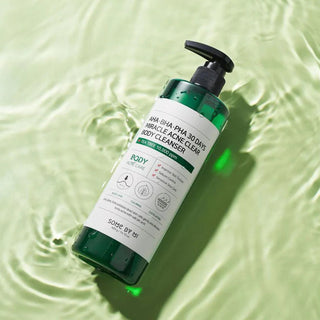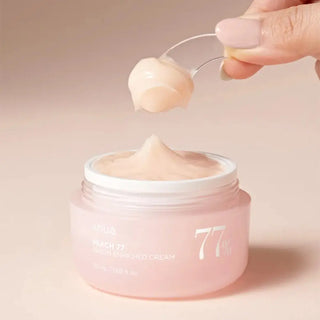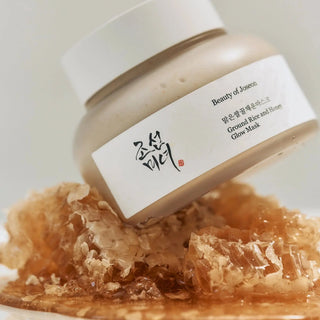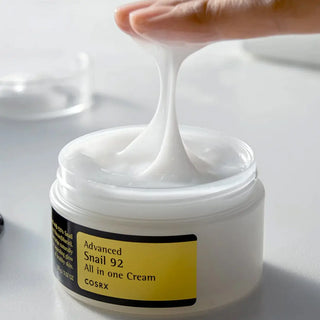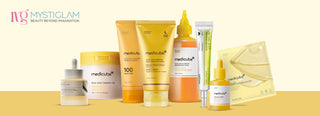Face masks can feel like a little moment of self‑care in our busy routines. But more than just pampering, different masks offer real skin benefits depending on the ingredients and how they are made. Understanding the different types of facial masks can help you choose what to use for your skin’s current needs.
In this blog, we will walk through popular types of masks, when to use them, and why they make a difference, and it will solve your problem with the most asked question: what face mask should I use?
Why Face Masks Actually Help
Using a face mask is not just a fun beauty ritual. Masks allow your skin to take in a high dose of beneficial ingredients and offer results that regular cleansers or moisturizers do not provide as quickly. When you leave on a mask for 10 to 20 minutes, the active components have time to sink in and work in a more focused way.
Masks can help with deep cleansing, calming, hydration, clarifying, or even gentle exfoliation. That makes them a powerful tool in your different types of face masks skin care toolkit.
Key Types and Their Benefits
Here are some of the most common types of facial masks for skin, and how each one benefits different skin concerns.
· Clay Masks
Clay or mud masks are made from natural minerals like kaolin or bentonite. They draw out impurities, absorb excess oil, and help unclog pores. These masks are especially helpful for oily or acne-prone skin. The clay gently detoxifies and refines, helping to reduce shine and clear out buildup.
· Sheet Masks
Sheet masks are thin fabric or bio-cellulose pieces soaked in a nutrient-dense serum. When applied to your face, they create a barrier that holds hydration close to the skin, helping you absorb ingredients more effectively. These masks provide deep moisturization, soothing, or treatment benefits depending on the serum.
· Gel Masks
Gel masks often feel cool and refreshing. They usually include soothing ingredients like aloe vera, hyaluronic acid, or cucumber extract. These work great for skin that feels sensitive, irritated, or stressed after spending time in the sun. A gel mask helps calm redness and restores moisture without feeling heavy.
· Cream Masks
Cream masks are thick and nourishing, usually packed with hydrating ingredients such as glycerin or shea butter. These types are excellent for dry or mature skin. By forming a protective layer, they help the skin retain moisture and improve elasticity.
· Peel-Off Masks
Peel-off masks start as a gel or liquid and firm up as they dry, forming a film that you lift off. When removed, the mask helps remove dead skin cells, blackheads, and trapped impurities. They can leave skin feeling smooth and fresh.
· Exfoliating or Enzyme Masks
These masks use fruit-derived enzymes (like papaya or pineapple) or gentle acids to dissolve dead skin cells without the abrasion of a scrub. They gently renew texture and help brighten the complexion.
How to Choose Based on Your Skin
So, how do you decide what face mask I should use right now? It depends on what your skin feels like and what it needs.
- If your skin is oily or congested, lean into clay masks a couple of times a week.
- If your skin feels dry or tight, try a cream or sheet mask for deep hydration.
- If you just got back from sunshine, a gel mask can soothe and cool.
- If you want to polish your skin, an enzyme mask gives gentle exfoliation.
For intense hydration and calming benefits, try these best Korean sheet masks.
Specialized Masks and Skin Concerns
Let’s look at how certain masks offer extra-targeted benefits.
· For Acne or Breakouts
Clay masks with ingredients like bentonite or sulfur can help reduce oil and unclog pores. These masks help purify and calm acne-prone skin.
· For Redness or Sensitivity
Gel masks with soothing extracts like aloe or cucumber can reduce inflammation. For more calming, sheet masks with centella asiatica or panthenol work very well.
· For Dehydration and Aging
Cream masks rich in hyaluronic acid, ceramides, or peptides restore moisture and support skin elasticity. These kinds of masks are excellent if you notice tightness or fine lines.
· For Brightening and Texture
Enzyme masks dissolve dead cells and reveal a smoother, more radiant tone. Peel-off masks also help with texture by gently lifting dull skin.
How to Use Face Masks Well
To get the most from any mask, here are some tips:
- Cleanse first: Start with a clean face so the mask can do its job.
- Apply in a thin, even layer: Use just enough product to cover your skin.
- Follow instructions: Some masks dry in 10 minutes; others may need more or less time.
- Rinse gently, if needed: For clay or cream masks, wash off with lukewarm water. For sheet masks, press in the remaining serum after removal.
- Moisturize after: Help seal in benefits by applying a light moisturizer or your regular night cream.
How Often Should You Use a Mask?
How often to use a mask depends on its type and your skin:
- Clay masks: 1 to 2 times per week for most skin types.
- Sheet masks: A few times per week or daily if your sheet mask is very mild and hydrating.
- Gel or cream masks: 1 to 3 times weekly, depending on skin needs.
- Exfoliating masks: Use sparingly, maybe once every 7 to 10 days if your skin tolerates active ingredients.
Why Variety Matters
Using a variety of masks helps you address different concerns without overloading your skin. Different types of face masks and their benefits mean you can mix and match depending on your skin’s condition, climate, stress level, and seasonal changes.
For example, you might pair a detoxifying clay mask (for congested skin) with a soothing sheet mask in the same week. This gives your skin both a deep clean and a hydration boost. It is a balanced strategy that supports skin health in the long run.
Linking with Your Skincare Routine
If you enjoy Korean skincare, you may already be familiar with sheet masks as a core part of your routine. Brands like Abib Korean skincare offer gentle and effective sheet masks that feel like a real treat for hydration or calming. Integrating sheet masks into a routine that includes clay, gel, or cream masks can help you build a thoughtful mask rotation.
Final Thoughts
Face masks are more than a self-care treat; they help your skin in many ways. Different types of facial masks let you choose the right one for cleansing, hydration, or soothing. For quality options, check out sheet masks that complement any skincare routine.
Ready to upgrade your mask routine? Visit our online store to find a wide variety of Korean beauty products in Dubai.


